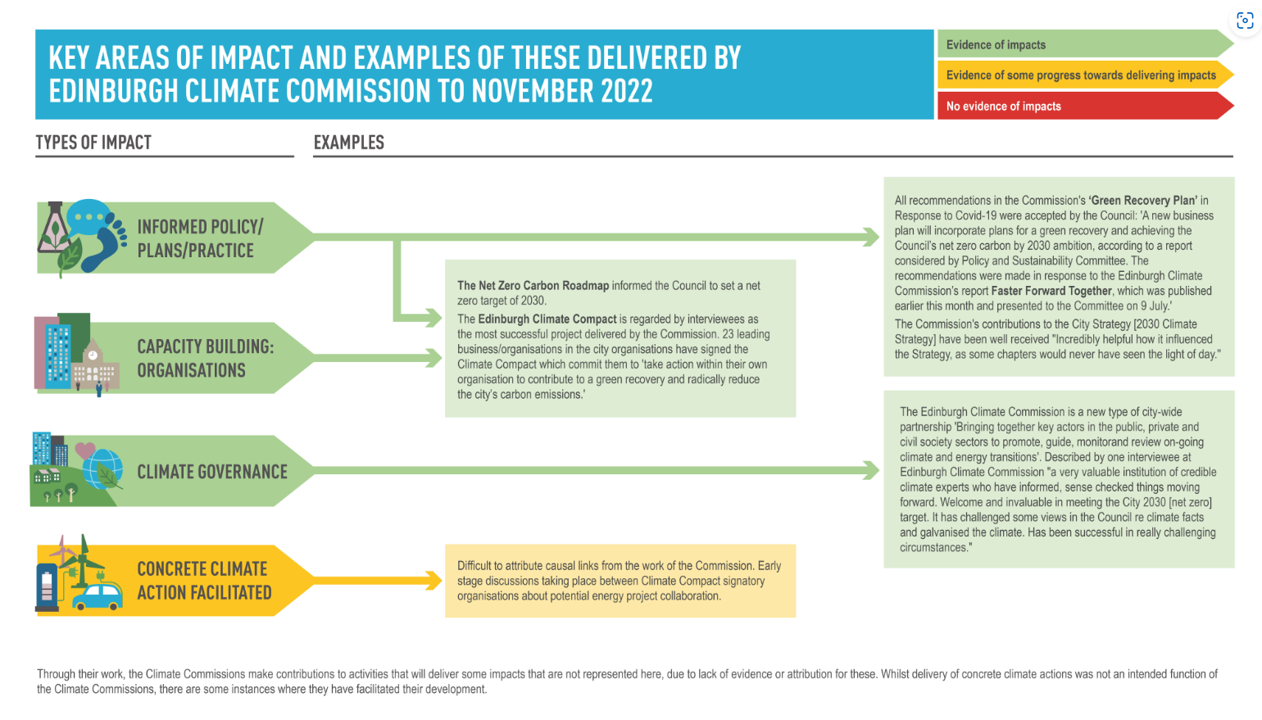CAG Consultants were commissioned by the Place-based Climate Action Network (PCAN) to undertake an Evaluation of the Impact of the Belfast, Edinburgh and Leeds Commissions. The aim of this was to help understand the role they are playing in the climate activities of their respective cities, and the extent to which they provide a replicable model for place-based climate governance. The report has been published by PCAN.
Climate Commissions were designed to fill a gap in local climate governance. They were set up to explore whether introducing an independent form of local governance could help accelerate local climate action, and to stimulate, test and learn from innovative place-based approaches. Edinburgh and Belfast were established in late 2019, with Leeds having been established two years earlier.
Key findings of the evaluation are:
- The three core PCAN Climate Commissions are widely valued and respected independent organisations in the local climate policy landscape and have all contributed to the development of local climate policy.
- The Climate Commissions adopt a number of roles, ranging from policy innovation, knowledge brokering, evidence provision on climate change, awareness raising, engagement, facilitation, and challenge.
- The Commissions have two functions primarily: that of a convenor bringing disparate organisations and individuals to work together to take action on addressing climate change in their cities, and that of an independent, evidence-based advisor role, providing impartial, robust evidence and advice to influence policy and delivery of climate action.
The evaluation study also identified areas for consideration for the future evolution of the Climate Commissions, including:
- Re-balancing mitigation and adaptation: the focus of all three Climate Commissions has predominantly been on climate mitigation and much less so on adaptation. More could be done to re-balance this and seek to further inform the local policy priorities for climate action.
- Unanticipated contextual factors: the COVID-19 pandemic led to a lack of face-to-face Commission meetings, which was felt to have a detrimental impact on the operation of the Commissions and relationship-building between Commissioners. Similarly, the lack of a Northern Ireland Government for much of the time the Belfast Climate Commission has been in existence was identified as a specific challenge and seen as a contributing factor to there being no national climate legislation in place until 2022 to help shape the priorities of the Commission.
- Resourcing and funding: consideration needs to be given as to how the Climate Commissions can secure sustainable and appropriate levels of funding to enable them to continue to deliver the functions identified in the report and the translation of work into tangible climate outcomes.
For further details on CAG’s role in evaluating the impact of the Climate Commissions, please contact Rhona Pringle at rp@cagconsult.co.uk
For commentary and the full report, please see:
Evaluation of the Impact of PCAN-supported Climate Commissions

